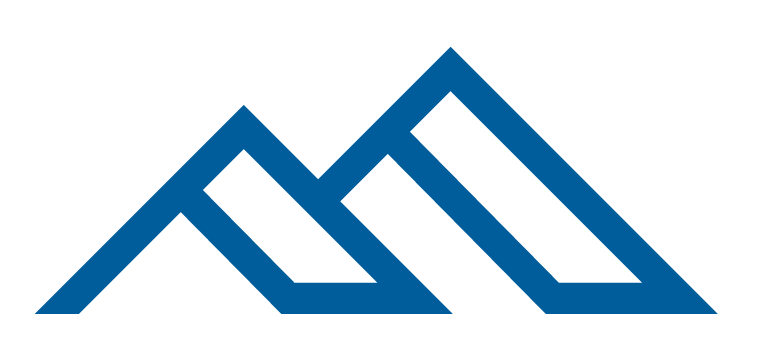I Wish I Had Known: Nick Maiorisi

Nick Maiorisi is a Senior Associate in Berkley Research Group’s (BRG) Corporate Finance & Restructuring group, where he transitioned from KPMG’s Financial Due Diligence (FDD) practice in December 2023. At BRG, he provides comprehensive advisory services to both companies and lenders in distressed situations. Restructuring groups serve to help organizations navigate complex challenges such as liability management, creditor negotiations, and potential bankruptcy proceedings. By drawing on expertise from both KPMG and BRG, Nick works to maximize value for his clients during corporate turnaround and restructuring processes.
Nick is also a member of Private Equity Primer’s Training Advisory Committee, where he shares his knowledge to help in the crafting of actionable FDD trainings. We sat down with Nick to discuss how FDD helped prepared him for his work in restructuring, and what habits he uses to destress in a demanding field.
Deal Guide: How did your time in Financial Due Diligence (FDD) help prepare you for restructuring, and what are some of the key differences in day-to-day work product between the two roles?
Nick: I believe FDD prepared me very well for restructuring in a few different ways.
FDD provides a great opportunity to see and dissect many different business models and industries at a relatively junior level. The ability to quickly understand the key drivers of a business, levers of profitability and working capital, and financial risks are all valuable skillsets in the world of business.
Hand in hand with the first point is the exposure to clients and management teams that FDD provides at a relatively junior level. First year associates in FDD get the chance to sit-in on due diligence calls with executives and gain an understanding of how they think about the business. I often enjoyed hearing management speak to their operational approach to things like contracting, customer retention, purchasing, and working capital management. Within the broader accounting profession, this operational perspective seems to be unique to FDD and has certainly helped me in transitioning to restructuring.
Finally, and sometimes overlooked, FDD provides an excellent training ground for data manipulation and analysis. In FDD you are constantly manipulating messy data in excel and working to distill high-level takeaways. This skill is crucial in the business world and was one of the smoothest transition areas for me into restructuring.
One key difference between FDD and restructuring has been the added focus on capital structure. Most of the time in FDD you are evaluating a business on a “cash-free debt-free” basis in the context of an asset transaction. Adding knowledge of capital structure, specifically relating to a company’s debt stack and ability to service debt, was new to me.
Deal Guide: What is one piece of advice that you would give to someone just starting out in FDD?
I think it’s important to continually seek advice and feedback to use as fuel for growth. I have received many pieces of advice along the way which have been helpful in my journey. I will share a couple that have been particularly helpful.
One of the guiding principles I try to live by is to have an aggressive mindset. Proactively seek out places where you can add value rather than waiting to be asked or managed. You should really try to put yourself in the client or investors shoes and think about what you would want to understand, analyze, or sensitize. Specific to FDD – this can take the form of additional analyzing data in the dataroom, sensitizing a targets sales plan, or proposing an EBITDA adjustment or purchase agreement consideration that your team hadn’t thought of. You should trust yourself and your instincts and also take ownership of your work product and be willing to put in the work to make sure your analyses are accurate. Often in my experience, the trust part comes only after you’ve put in the required work.
One caveat is that I always found it was both important and helpful to first understand the clients deal thesis and perspective. This will inform the lens through which you view the transaction and help you figure out where you can best add value, and what areas you should be hyper focused on.
A second piece of advice that I use daily relates to synthesizing key takeaways. I know you cover this in your M&A Bootcamp training. When presenting “up the chain” it can be easy to want to dive into the details of the work and how a given analysis came together. In most scenarios I think it is actually better to start to the top with the 10,000-foot view of the key implications of your analysis; and then funnel down into the details depending on the questions you are asked. Prepare for each meeting as if it will only be 5 minutes and you need to convey the key points. This will help you and your senior team members have focused conversations around the key deal points.
With this being said – you should take ownership over the data and be able to answer questions should they be asked. If there are areas of data preparation that you do need to flag to seniors you should certainly still do so, but I have found it’s best to do this in a either specific setting when there is time to dive deep, or to lay out your questions thoughtfully in an email so your senior team member can take a detailed read through when they have an appropriate window of time.
I have found that this approach often takes more time and effort because it adds an additional layer of work. Once you complete a task, clear your mind, and come back to view the analysis from a high-level perspective and think about whether the numbers make sense, what they imply, how you could summarize the takeaways in 1 to 5 minutes.
Deal Guide: This is a demanding industry with a lot of pressure and tight deadlines. What are some of the ways you deal with pressure and adversity?
Nick: It is important to prioritize and protect something that is important to you and find a way to fit it into your schedule. This could be time with family and friends, exercise, reading, playing an instrument, or anything; however, in my opinion, it should be something that adds to your glass rather than takes away from it. There are a lot of ways to “relieve stress” that actually deduct from your glass and add to the cumulative burden of stress over time. For me – when I am busiest or most stressed, this might look like going to the gym or for a run on a Friday night rather than going out for drinks. Personally – I believe these types of decisions are what have most helped me avoid burnout.
In dealing with adversity, I think it’s important to avoid taking things personally. Think about your career as a long journey that you are just at the start of. Every setback is a chance to improve and sharpen your sword. Seek out feedback and take it seriously when you receive feedback. It is actually harder to give someone to give you negative feedback than confirmatory positive feedback; as such you should greatly appreciate and seek out those individuals who are willing to provide you with constructive feedback. It is incredible how much you can improve in a short period of time when you can put the ego aside and regularly seek out and incorporate constructive feedback.
Deal Guide: People often emphasize the importance of maintaining a strong network, do you have any tips or keys to help younger folks begin building a network that will pay dividends throughout their career?
Nick: When you are starting out, networking is a word that’s thrown around a lot but never really explained. For a long time, I put a lot of pressure on myself to be “networking” but never quite understood what that meant. I think networking does not mean reaching out to tons of people on LinkedIn. Rather it comes through your reputation of doing great work and being a genuinely good person to work with. If you do great work and maintain a positive attitude, it is amazing how many connections you will have when you look around in 4 or 5 years. I think it’s important to stay in touch with people, but you don’t have to overdo it. I like to send a short message or a link to a relevant podcast, news article, etc.. This way I am not asking for anything but rather just creating a quick touchpoint. You don’t want people to see you name pop up on their phone and associate it with you asking for something from them.
